There is a peculiar alchemy in cinema: a moment when an actor steps into the frame, and the world outside the screen seems to dissolve. Not all actors achieve this. Some merely perform; others inhabit the screen, bending time, commanding attention, and shaping the emotional pulse of a room.
In Yoruba cinema, three names are inseparable from this magnetic aura: Odunlade Adekola, Femi Adebayo, and Ibrahim Chatta. Each is a master of a different cinematic force—comedy, intellect, tension—but all are bound by one commonality: presence that feels almost gravitational.
Who truly commands the screen? It is a question that has ignited debates in cinema halls, living rooms, and social media forums alike. It is also a question with no absolute answer, because dominance can manifest in laughter, in the pause before a line, in the depth of a glance, or in the quiet authority that lingers long after the film ends.
This is a journey not to declare a victor but to trace the currents of influence, talent, and artistry that make Yoruba cinema a realm of emotional gravity.
The Biographies: Roots of Artistry
Odunlade Adekola: The Sunlight of Yoruba Cinema
Born on December 31, 1976, in Abeokuta, Ogun State, Odunlade Adekola’s early life was like a sunrise over the Ogun River—bright, inevitable, and full of promise. From his days at St. John’s Primary School and St. Peter’s College, young Odunlade displayed the kind of instinctual charisma that seemed to ripple outward, touching everyone who witnessed it.
The son of Pastor Nathaniel Adekola and Deaconess Adekola, his formative years were steeped in discipline, spirituality, and communal values. These roots were the soil from which his storytelling would grow—rich, layered, and resonant with human emotion. His journey through Moshood Abiola Polytechnic and later the University of Lagos, where he earned his degree in Business Administration, became the scaffolding that merged natural talent with structured craft.
Odunlade’s personality—the cadence of his laughter, the rhythm of his gestures, the warmth of his presence—became his early toolkit. It is no exaggeration to say that he does not merely act; he radiates, like sunlight breaking through clouds, illuminating the screen and inviting audiences to bask in his world.
Femi Adebayo: The River of Duality
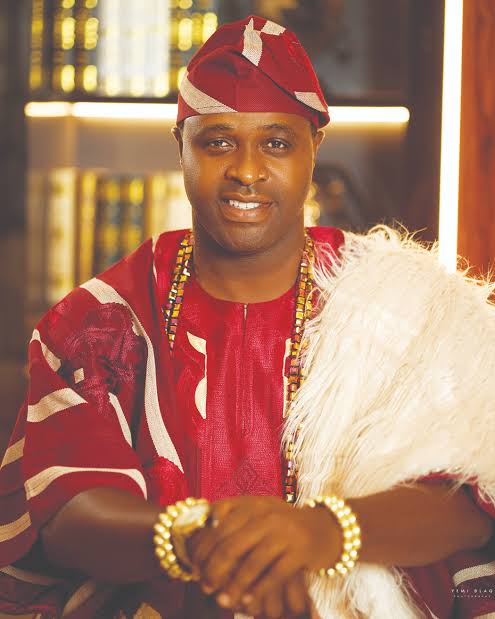
Born on the same December day, December 31, 1976, but in Lagos, Femi Adebayo is the river that flows between two banks: tradition and modernity, scholarship and performance, inherited legacy and self-forged identity. As the son of veteran actor Adebayo Salami, he had early access to the currents of Nollywood. Yet Femi’s journey is not merely a tributary of inheritance—it is a river that carves its own course.
Educated in law at the University of Ilorin and holding a master’s degree from the University of Ibadan, Femi brings intellectual depth to his art, blending analytical precision with emotional truth. His biography reads like a dance between the head and the heart: he approaches characters as both scholar and storyteller, probing beneath the surface while embracing the raw pulse of human experience.
Femi’s life and work embody the quiet persistence of a river—sometimes reflective, sometimes roaring, always moving forward, shaping the landscape of Yoruba cinema as it flows.
Ibrahim Chatta: The Ember of Intensity
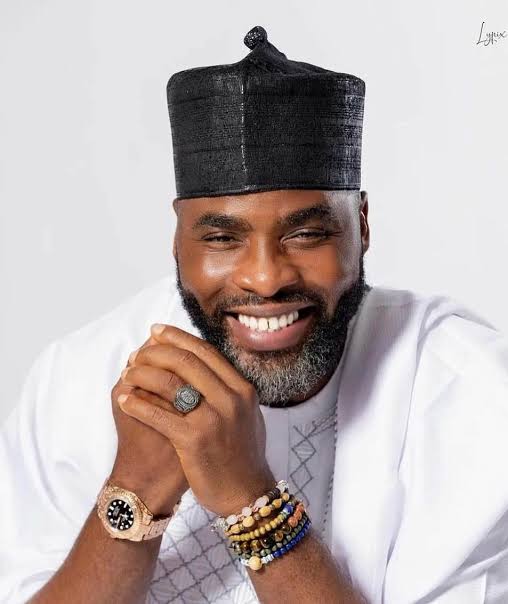
Ibrahim Abiodun Chatta, born October 14, 1970, in Bacita, Kwara State, is the ember that quietly burns but warms everything around it. Raised in a large family of 14 siblings, his early life was modest, a canvas that required patience and resilience. Formal education was limited—he attended Saint Bridges Catholic Primary School but left secondary school early—yet his spirit was a forge in which artistry was hammered.
Ibrahim’s strength lies not in flamboyance but in the electric subtlety of his presence. Each gesture, each pause, each glance carries weight, as if the air itself bends around him. His biography is a testament to quiet dedication: a life spent cultivating skill, mastering nuance, and crafting performances that linger like smoke in memory long after the scene has ended.
In essence, while Odunlade shines like the sun and Femi flows like a river, Ibrahim smolders like an ember—resilient, intense, and quietly unforgettable.
Breakout Movies: The Dawn of Recognition
Every screen commander has a moment that illuminates the path ahead. For these actors, their breakout roles were not merely first appearances; they were declarations of intent, signaling to audiences and the industry alike that formidable presences had arrived.
Odunlade Adekola
Odunlade Adekola first captured widespread attention in films that intertwined humor with social commentary, establishing him as a versatile entertainer capable of navigating both comedic timing and dramatic tension. His early works displayed a natural ease in front of the camera, where expressions spoke as powerfully as dialogue.
Breakout Movie: Asiri Gomina Wa (2003)
This film marked Odunlade’s first major recognition, highlighting his ability to blend comedy with subtle social critique. Audiences and critics alike took notice of his natural screen magnetism, signaling the emergence of a star whose versatility would define Yoruba cinema for years to come.
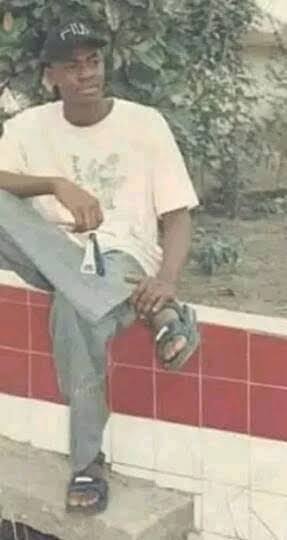
Femi Adebayo
Femi Adebayo found his breakout in roles that demanded emotional dexterity, often juxtaposing youthful charm with mature depth. His early films revealed a performer adept at carrying complex narratives, capable of sustaining audience engagement through nuanced performance arcs.
Breakout Movie: Owo Blow (1996)
This early role placed Femi Adebayo firmly on the map as a rising talent in Yoruba cinema. His portrayal in Owo Blow demonstrated both emotional depth and screen charisma, establishing him as an actor capable of handling challenging and varied roles.
Ibrahim Chatta
Ibrahim Chatta emerged from smaller, understated roles, yet his breakout performances carried an intensity that lingered. Chatta’s early works demonstrated his capacity to inhabit diverse characters convincingly, signaling a rising force in the screen domain.
Breakout Movie: Aiyekooto (2012)
In this film, Ibrahim showcased his ability to command attention with subtle, controlled performances. Aiyekooto highlighted his talent for portraying complex, layered characters, confirming his status as a serious and enduring force in Yoruba cinema.
Each of these breakout films marked a pivotal turning point, propelling Odunlade Adekola, Femi Adebayo, and Ibrahim Chatta into the spotlight and laying the foundation for their enduring legacies in Yoruba cinema.

The Movies That Made Them Household Names
Odunlade Adekola: Humor, Heart, and Unstoppable Magnetism
Odunlade Adekola’s trajectory from rising star to household name is anchored in films that resonated beyond mere entertainment. Movies such as Alani Pamolekun, Saamu Alajo, and Oyenusi weren’t just commercial successes; they became cultural touchstones.
In these roles, Odunlade harnessed a rare alchemy: he could evoke laughter, tears, and introspection within the same scene. His timing—both comedic and dramatic—was instinctual, an extension of a rhythm rooted in Yoruba oral traditions. Audiences didn’t just watch Odunlade; they felt him, lived alongside him, and carried fragments of his characters into daily conversation.
Where many actors deliver lines, Odunlade owns the space around them. He transforms ordinary dialogue into lived experience, a hallmark that elevated him from talented performer to cultural icon. Social media, meme culture, and Nollywood fan forums often cite his ability to “carry the screen” as unmatched, creating a gravitational pull that draws audiences into his cinematic orbit.
Femi Adebayo: The Art of Nuance and Narrative Weight
Femi Adebayo’s rise to household recognition follows a path less flamboyant but no less commanding. Films such as Seven Doors, Jagun Jagun, and Omo Ologo showcased his versatility, blended gravitas with filmmaking relatability. Femi’s characters often inhabit moral and social dilemmas, requiring not just performance but interpretive intelligence.
Audiences gravitate toward Femi not solely because of his lineage or charisma but because his roles reflect life’s complexity. He navigates the tension between tradition and modernity, comedy and tragedy, authority and vulnerability. In doing so, he establishes a cinematic rapport that fosters trust: viewers know that with Femi on screen, every emotion is credible, every reaction genuine.
His household recognition comes from this blend of intellect, emotional depth, and polished craft. Where Odunlade commands through presence, Femi commands through nuanced articulation of layered humanity.
Ibrahim Chatta: Intensity in Subtlety
Ibrahim Chatta’s ascent is defined by intensity that whispers rather than shouts. Films such as Atini o’go , Mafi Wonmi, and Olokiki Oru cemented his reputation as an actor whose minimalism speaks volumes. Chatta’s performances are less about flamboyant display and more about controlled, electric energy that simmers beneath the surface.
Audiences remember Ibrahim not for grand gestures but for the internalized emotional journeys his characters undergo. A glance, a measured pause, or a subtle inflection can dominate the frame, making his presence a silent yet potent command. It’s this understated mastery that differentiates him: in a cinematic space often dominated by overt dramatics, Chatta’s quiet intensity cuts deeper, embedding his performances into memory.
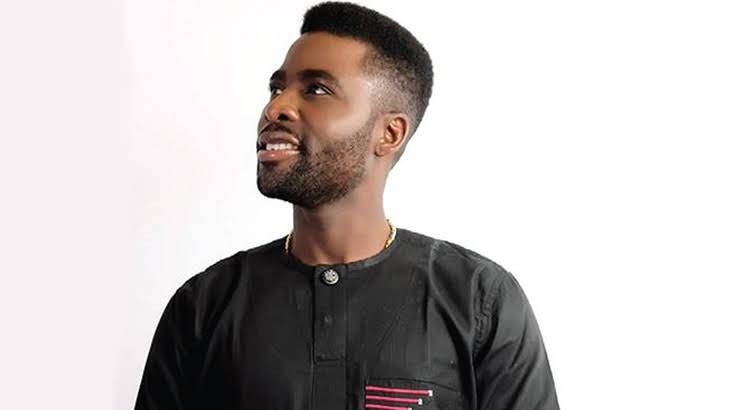
What Differentiates Them: Unique Qualities and Screen Command
Screen command is not monolithic; it manifests in multiple dimensions—presence, versatility, emotional resonance, and audience connection. Odunlade, Femi, and Chatta each exemplify these dimensions differently.
Odunlade Adekola: The Crowd-Puller
Charisma as Currency: Odunlade’s screen presence is magnetic; he fills the frame effortlessly, creating an aura that draws attention without artifice.
Cultural Resonance: He embodies Yoruba humor, morality, and communal values in a manner that feels lived-in rather than performed.
Versatility with Accessibility: While he can traverse comedy, drama, and action, he maintains an accessibility that makes audiences feel personally connected.
In metaphorical terms, Odunlade is a sun at high noon: impossible to ignore, radiating energy that warms, illuminates, and sometimes blinds. His command is immediate, visceral, and communal.
Femi Adebayo: The Narrative Conductor
Emotional Intelligence: Femi’s performances thrive on subtle shifts, where internalized thought processes and emotional arcs drive engagement.
Analytical Depth: His training and heritage allow him to approach roles with a strategist’s mind, balancing narrative complexity with relatability.
Adaptable Gravitas: Whether portraying a scion of tradition or a man torn by contemporary dilemmas, Femi conveys authenticity.
Metaphorically, Femi is a river carving valleys over time: quiet but persistent, shaping the landscape with patient authority. His command grows steadily, leaving enduring impressions.
Ibrahim Chatta: The Silent Force
Controlled Intensity: Chatta leverages minimalism to maximum effect, letting tension and emotional undercurrents define the scene.
Psychological Depth: His characters often linger in the mind because of their internalized conflict and authentic behavioral realism.
Subtle Magnetism: He draws attention without theatricality, ensuring that the screen responds to him rather than vice versa.
Ibrahim resembles a lighthouse at dusk: standing firm, guiding attention, illuminating critical paths without ostentation. His command is understated but unwavering, demanding respect through focus and restraint.
Crafting the Screen: The Art of Performance and Timing
The divergence between these actors becomes even more evident when examining their approaches to performance:
Odunlade thrives on rhythm and spontaneity, often improvising lines or reactions, giving scenes an organic, kinetic energy.
Femi approaches scenes with deliberate timing and analytical construction, ensuring that every gesture and inflection aligns with character motivation.
Ibrahim prioritizes internalization, letting emotion accumulate before release, creating tension that transforms otherwise simple scenes into emotionally charged landscapes.
In this triad, one might say that Odunlade commands through volume and presence, Femi through precision and narrative layering, and Ibrahim through depth and psychological resonance.
Accolades and Industry Recognition: Markers of Excellence
Odunlade Adekola: A Legacy of Recognition
Odunlade Adekola has garnered several prestigious awards throughout his career, reflecting his versatility and impact in the Nigerian film industry.
Awards and Nominations
2016: Africa Magic Viewers’ Choice Awards (AMVCA) – Best Actor in a Comedy for A Million Baby – Won .
2017: Best of Nollywood Awards – Best Actor in a Lead Role (Yoruba) – Nominated .
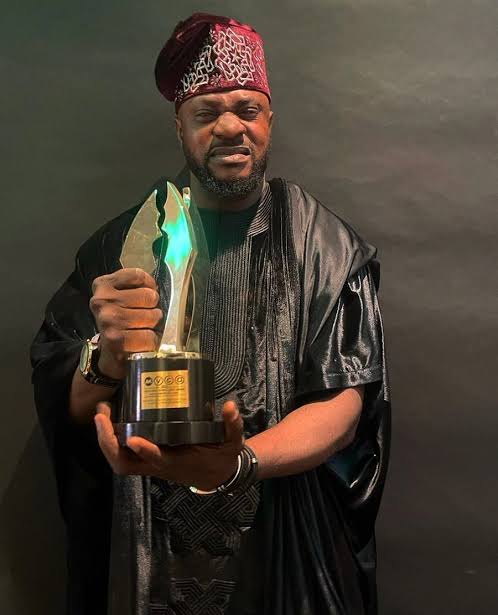
2018: Africa Magic Viewers’ Choice Awards (AMVCA) – Best Actor in a Comedy for A Million Baby – Won .
2019: Best of Nollywood Awards – Best Supporting Actor (Yoruba) – Nominated .
2022: Africa Magic Viewers’ Choice Awards (AMVCA) – Best Supporting Actor for Jankariwo – Won .
2022: NET Honours – Most Popular Actor – Won .
These accolades underscore Odunlade’s consistent excellence and popularity in the Nigerian film industry.
Femi Adebayo: A Trailblazer in Yoruba Cinema
Femi Adebayo has established himself as a prominent figure in Yoruba cinema, earning numerous awards for his performances and contributions.
Awards and Nominations
2009: Africa Movie Academy Awards (AMAA) – Best Actor in a Supporting Role for Apaadi – Nominated .
2015: City People Entertainment Awards – Best Movie Producer of the Year (Yoruba) – Won .
2017: Best of Nollywood Awards – Best Actor in a Lead Role (Yoruba) for Afaila Ojo – Won .
2018: Africa Magic Viewers’ Choice Awards (AMVCA) – Best Indigenous Movie (Yoruba) for Etiko Onigedu – Won .
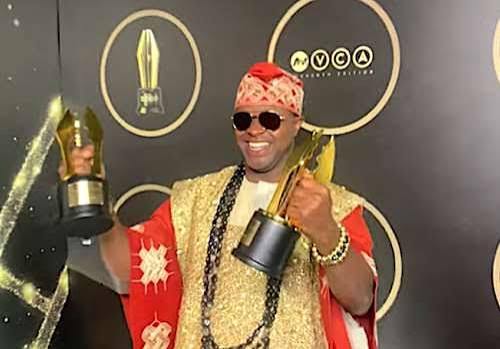
2020: Africa Magic Viewers’ Choice Awards (AMVCA) – Best Actor in a Comedy for Lucifer – Won .
2023: Africa Magic Viewers’ Choice Awards (AMVCA) – Best Actor in a Drama, Movie or TV Series for King of Thieves (Agesinkole) – Nominated .
2024: Africa Magic Viewers’ Choice Awards (AMVCA) – Best Indigenous Language Movie – West Africa for Jagun Jagun – Won .
2025: Africa Magic Viewers’ Choice Awards (AMVCA) – Best Lead Actor for Seven Doors – Won .
Femi’s accolades reflect his dedication to elevating Yoruba cinema and his ability to connect with audiences through compelling performances.
Ibrahim Chatta: A Master of Craft and Dedication
Ibrahim Chatta’s journey in the film industry is marked by his commitment to his craft and the recognition he has received over the years.
Awards and Nominations
2012: Best of Nollywood Awards (BON) – Best Actor in a Supporting Role – Won .
2013: Best of Nollywood Awards (BON) – Best Supporting Actor in a Yoruba Film (Ifa Iwa) – Won .
2019: City People Movies Awards – Best Actor of the Year (Yoruba) – Won .
2024: Odunlade Adekola Film Production (OAFP) Awards – Legend of the Year Award – Won .
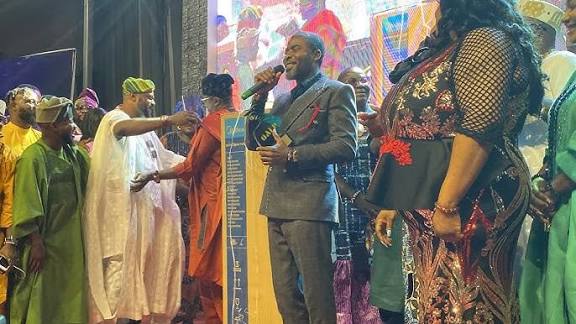
Ibrahim’s accolades highlight his versatility and the respect he commands within the industry.
Careers in Motion: Evolution, Growth, and Mastery
Screen command is never static. It evolves with time, experience, and the shifting tastes of audiences. The trajectories of Odunlade Adekola, Femi Adebayo, and Ibrahim Chatta illustrate not just talent but the dynamic interplay between craft, opportunity, and cultural resonance.
Odunlade Adekola: The Kinetic Trailblazer
Odunlade’s career trajectory mirrors a shooting star—sudden brilliance followed by sustained illumination. From his early comedic roles to epic Yoruba drama narratives, he has consistently expanded his repertoire. His latest films showcase his ability to anchor ensemble casts, transforming supporting roles into central points of emotional gravity.
His evolution also reflects entrepreneurial acumen. Beyond acting, Odunlade has embraced production, directing, and endorsements, positioning himself as a nexus of Yoruba cinema influence. Audiences perceive him as not just an actor but a cultural phenomenon, a figure whose presence defines the very moment a movie begins.
Femi Adebayo: The Layered Storyteller
Femi’s growth resembles a river expanding its tributaries, broadening influence quietly yet persistently. While initially following in his father’s footsteps, Femi has emerged as one of the best storytelling filmmakers in Nollywood, blending Yoruba cultural motifs with universal themes. His films, from family dramas to morally complex narratives, reveal a mind that constructs stories with meticulous care, layering depth, emotion, and social insight into every frame.
His screen command is architectural; he measures emotion, pacing, and audience engagement with precision, sculpting narratives that linger long after the credits roll. Femi’s career is a testament to the power of legacy fused with innovation, earning him recognition as both a custodian of tradition and a pioneer of compelling storytelling.
Ibrahim Chatta: The Silent Vanguard
Ibrahim Chatta’s career progression is akin to a slow-burning ember, where heat accumulates invisibly, yet when released, commands attention. His performances consistently reveal internalized tension and controlled power, cultivating a reputation as a performer’s performer—respected by peers and deeply appreciated by discerning audiences.
Beyond the screen, Chatta has expanded his influence by establishing a film village in Oyo State, creating a hub for training, production, and cultural preservation. This initiative reflects his commitment not just to acting but to the sustainable growth of Yoruba cinema. Each film and project adds a new layer to his silent but commanding presence, illustrating a career built on consistency, depth, and integrity.
Who Truly Commands the Screen?
At the heart of this discussion lies a metaphorical truth: screen command is not a monolith. It is multidimensional, subjective, and dynamic.
Odunlade Adekola’s command is visceral, immediate, and joyous—a force that electrifies the screen and immerses audiences in collective experience.
Femi Adebayo’s command is measured, intricate, and reflective—a presence that grows on the viewer, deepening narrative immersion through layered craft.
Ibrahim Chatta’s command is quiet, intense, and lingering—a subtle gravity that anchors scenes and embeds performances in lasting memory.
Like different elements shaping a landscape—sunlight, water, and stone—each actor commands the screen in unique ways. The question of “who is supreme” dissolves into a more nuanced understanding: screen mastery manifests in multiple registers, and each of these artists excels in a distinct register.
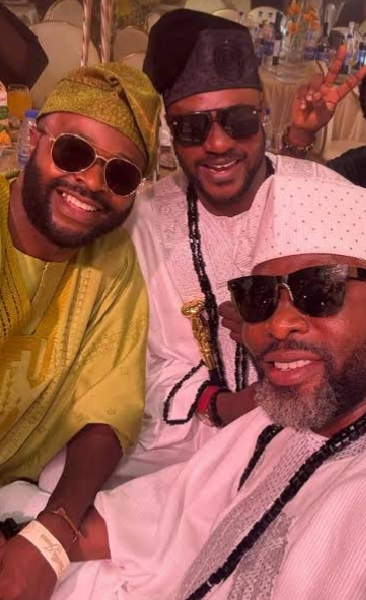
Closing Reflection: A Symphony of Screen Command
Odunlade, Femi, and Ibrahim are not merely actors; they are architects of perception, crafting experiences that elicit laughter, empathy, reflection, and admiration. To compare them is not to crown a single victor but to appreciate the diverse instruments of cinematic authority they wield.
Odunlade is the pulse of public delight, Femi the depth of narrative intelligence, and Ibrahim the echo of understated brilliance. Together, they define contemporary Yoruba cinema, proving that screen command is as much about presence, craft, and resonance as it is about fame or fortune.
The screen, in the end, is vast enough to accommodate all three, each leaving an indelible imprint on audiences who return, time and again, to witness the mastery of craft rendered with heart, soul, and enduring cultural significance.





